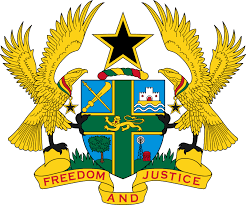Sorry, your search did not match any of our live jobs
We suggest that you:

JOB SUMMARY |
|
| Company | Ministry of F... |
| Industry | Public Sector |
| Category | Policy |
| Location | Outside Accra |
| Job Status | Full-time |
| Salary | GH¢ |
| Education | University de... |
| Experience | 8 years |
| Job Expires | Dec 27, 2024 |
| Contact | ... |
| |
|
|
REQUEST FOR EXPRESSIONS OF INTEREST
(INDIVIDUAL CONSULTANTS SELECTION) Project Name: Promoting Rural Opportunities, Sustainable Profits & Environmental Resilience (PROSPER) Project
BACKGROUND
The Government of Ghana has received funding from the International Fund for Agricultural Development (IFAD) for the implementation of “Promoting Rural Opportunities, Sustainable Profits & Environmental Resilience (PROSPER)” Project. The project's total cost is estimated at US$52.5 Million. This is made up of a Blended Loan of US$35.1 million and a Highly concessional Loan of US$17.3 million. The project will adopt the Value Chain Approach for developing agricultural growth in the country and aims at developing agricultural value chains and increase agricultural production. PROSPER will support the implementation of the Ministry’s five years strategy – The Planting for Foods and Jobs Phase II (PFJ 2.0)
The Project Development Goal/Objective: PROSPER is to Strengthen the integration, climate resilience, and environmental sustainability of smallholders and businesses in the selected priority value chains of the PFJ 2.0
Coverage/Geographic Area: PROSPER will be implemented over an 8-year period. The geographic area of intervention extends to eight (8) regions. Five (5) regions in the North (Northern, North East, Savannah, Upper West and Upper East Regions), and three neighbouring regions in the Middle Belt (Bono, Bono East, and Oti). Two regions down South (Eastern and Volta regions) are envisaged to be included during implementation.
Project Targeting Strategy: PROSPER’s primary target groups will be the poorest households. The targeting strategy considers: (i) high rural population (ii) high poverty prevalence (iii) high rate of food and nutrition insecurity (iv) strong concentration of female and male youth (v) presence of relevant economic opportunities (vi) the level of degradation of the productive Natural Resource base (particularly soil, water and vegetation) and (vii) indicators of climate vulnerability.
Project Components - the project has three components:
Component 1: Development of rural institutions and socioeconomic infrastructure. The expected outcome is improved sustainable livelihoods in target areas supported by strengthened rural institutions and improved socioeconomic infrastructures. These actions are concentrated on investing in “public goods” (feeder roads/farm tracks, portable drinking water, public toilets) within and for the benefit of the targeted 100,000 beneficiaries in the project areas.
Component 2: Strengthening the economic benefits for smallholders and small operators around selected agricultural value chains. The expected outcome is smallholders and small businesses draw greater benefits from the increasing market outlets for agricultural produce through comprehensive financial, capacity and marketing support. Whereas the first component will invest in the human, physical and natural resources of the target communities, the second component is concentrated on investing in the “private goods” of the population to bring about a sustained uplift in the earning capacity of agricultural producer groups and related enterprises.
Component 3 Project management and Policy engagement. The expected outcome of this support component is efficient and timely delivery of PROSPER development results and support to evidence-based sectoral policy formulation.
PROJECT IMPLEMENTATION UNIT
The implementation of the project will require the establishment of a Project Implementation Unit. The PIU/PMU will consist of key experts who will lead the implementation of the project. Among this include:
1. Gender, Social Inclusion and Vulnerability Specialist
Duration and location of the assignment
This is a full-time assignment for an initial period of 24 months renewable based on satisfactory performance from the date of contract signature for all positions. Selected consultants must not be engaged in any other ongoing assignment in Ghana or elsewhere at the time the employee contract comes into force. Non-compliance would lead to the cancellation of the contract by MoFA. Falsifying personal data would also lead to disqualification. The location of the assignment will be outside Greater Accra.
Under the general supervision of the National Project Coordinator, the Gender, Vulnerability & Social Inclusion Specialist will organize and supervise activities in the following areas (themes): a) targeting, b) promoting gender equality and women's empowerment; c) empowering youth, and d) promoting the inclusion of PWD. The selected candidate shall perform the following Functions and Responsibilities. Project implementation:
Communication:
Advocacy:
Required Skills or Experience The selected candidate should have the following qualifications, experience and skills:
How To Apply Qualified and interested applicants should send both email and hard copies of application letter, curriculum vitae, certificates and other relevant documents to: Email: prosperproject@mofa.gov.gh Closing Time & Date: 3.00 p.m. on or before 27th December, 2024 For further information please contact:
Note
Please note, employers receive numerous applications per posting and will only shortlist the most qualified candidates. Also Jobsinghana.com is not involved in any decision made by an employer/recruiter and therefore does not guarantee that applications sent will result in a candidate being shortlisted/selected for that position. Jobsinghana.com has no affiliation with this employer/recruiter. This is a courtesy posting and we therefore urge you to review the application procedures and apply accordingly. |